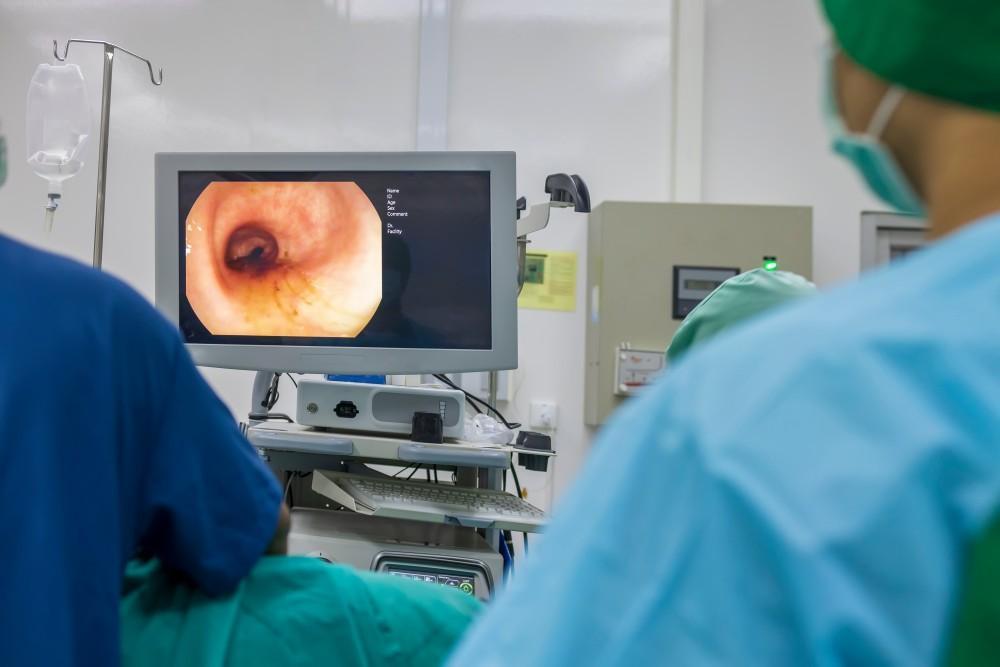
5 Tips for Managing Your Crohn's Disease During the Holidays

About 1.6 million women, men, and children in the United States have some form of inflammatory bowel disease (IBD), which includes both ulcerative colitis (UC) and Crohn’s disease (CD). More extensive than UC, CD can cause inflammation and damage in any part of the gastrointestinal (GI) tract, from your mouth to your anus.
Whether you inherited your CD, or whether it developed due to environmental exposures, you may have periods when your disease is in remission. And then, suddenly, it flares again.
At Colon and Rectal Surgeons of Greater Hartford, our knowledgeable and caring colorectal physicians and surgeons diagnose and treat all forms of IBD, including CD. To avoid complications from your disease, we help you manage symptoms with lifestyle changes and medications at our offices in Bloomfield, South Windsor, and Plainville, Connecticut.
How can you get through the holidays, flare-free, if you have CD? Following are five tips to manage symptoms this holiday season.
1. Have an (anti-) attack plan for parties
If possible, find out what kinds of foods and drinks will be on offer before you hit the office party or holiday gathering. When you know in advance that there are choices between trigger foods and safe foods, you can more easily bypass the prime rib in favor of the roast turkey you know is on the next table.
Remind yourself what foods you tolerate, even when you’re in the middle of a flare. If you’re currently in remission, it might be more tempting to put a custard tart on your plate, but if you think about healthier options ahead of time, you might bypass that tray.
Pick up a small plate at the buffet, or only fill half of your plate at a dinner. Smaller meals are easier to digest than larger ones.
2. Concentrate on the “safe” foods
Be as familiar as possible with the foods that do best with your body, so you can make positive choices instead of just avoiding your triggers. Let your eyes and taste buds be tantalized by cooked veggies and water-soluble fruits, such as:
- Cooked leafy greens
- Roasted sweet potatoes
- Roasted squash
- Cooked carrots
- Cooked green beans
- Potatoes
- Rice
- Fatty fish such as salmon
- Tree nut butters
- Berries
- Bananas
- Roasted poultry
- Fish
- Yogurt
Feel free, too, to let your hosts know about your dietary requirements. Most will be happy to accommodate you. If you’re going to a party or a dinner, ask if you can bring a dish that you’ve prepared yourself to share with others.
3. Host a holiday party
You have more control over the foods on offer if you’re the one who’s offering them. To lower your stress level, you might create a menu and then assign your guests to bring the dishes.
Boil, grill, roast, steam, or poach entrees and side dishes to minimize the use of pro-inflammatory fats. You can also encourage baking that uses dates or date syrup instead of sugar for gut-friendly desserts.
4. Stay hydrated
More than ever, it’s important to stay hydrated during the holidays. Adequate hydration helps you digest food and keeps your energy levels high.
If you’re hosting, offer delicious but nonalcoholic beverages to avoid irritating your GI tract. If you’re at a party, concentrate on water or tea as your main beverage, then search for alcohol-free mocktails and other drinks.
5. Take your meds
Even if you’re in remission, be sure you take enough medication to cover a flare if you’re away for the holidays. Call our office if you’re running low on your prescription and need to put in an extra supply.
Check with us if you think you might benefit from other digestive aids. For instance, enzymes that help you digest protein, lactose, or beans might help you get through an otherwise tricky meal. Also be sure you take time out just for yourself: Meditation can be just as useful as medication when it comes to dealing with holiday stress.
Do you want to enjoy the holidays, flare-free? Call our office nearest you (Bloomfield, South Windsor, or Plainville, Connecticut), or schedule an appointment online for a Crohn’s disease evaluation and treatment today.
You Might Also Enjoy...


How a Colonoscopy Can Save Your Life

4 Signs You May Have Pilonidal Disease

Start the New Year Fresh with a Colonoscopy

Is Surgery the Best Solution for Pilonidal Disease?


